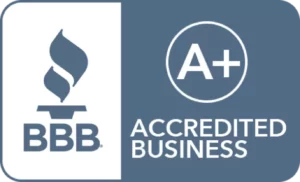If you have a High Deductible Health Plan (HDHP), you can open and funds an HSA. There are many reasons to establish a Health Savings Account. These include pretax contributions, tax-free distributions and the ability to invest money earmarked for health care. In the follow, we will discuss all the benefits of the HSA plan.
Why Establish a Health Savings Account?
There are many advantages to establishing an HSA is you have an HDHP. Many of the benefits arise from the tax treatment of the plan. The ability to put away money for unexpected health issues makes the HSA an invaluable tool. Since funds in an HSA can only be used for qualified medical expenses (QME), you won’t be tempted to dip into it. If you have a retirement plan, such as a 401(k) or IRA, you will see similar benefits to an HSA.
PreTax Contributions
Just like you can have funds taken from your paycheck for a 401(k) plan, you can do the same for an HSA. All contributions made to an HSA are done so before taxes are taken out. Therefore, they are not considered federally taxable income during the year which they are made. Although, some states may tax those contributions.
The IRS sets the limit you may contribution annually. For 2023, you may contribute up to $3,850 if you have self-only coverage and $7,750 if you have family coverage. Plus, if you are at least age 55, you may contribute an additional $1,000.
Who Can Contribute?
Of course, you can contribute as much as you want to the plan. However, you can get some help to reach the annual maximum. If offered, your employer may contribute to the plan on your behalf. Further, if you are on a family plan, your spouse can contribute as well. In fact, assuming your children are on the HDHP, your spouse can contribute on their behalf as well.
Further, contributing to an IRA, 401(k) or other plan does not lessen your ability to fund an HSA. You may contribute the maximum allowed per year, no matter how much you contribute to other plans, if at all.
More Tax Benefits
Not only do you not pay taxes on the contributions made to your HSA, but all distributions for qualified medical expenses are tax-free as well! Further, if you fund the plan with after-tax dollars, you can deduct them from your gross income, which will lower your tax bill. Once you reach age 65, you can withdraw funds for any reason and only owe taxes.
Roll Over Funds Year to Year
If you have funds in your HSA at the end of the year, they automatically roll over to the next year. Other plans have a “use it or lose it” option. If you do not exhaust those funds on medical expenses before the end of the year, you lose them.
Bring it with You
The Health Savings Account is portable, meaning it’s not tied to your job. Further, you have the option of changing health care plans and still using the plan. Of course, it has to be an HDHP to to qualify. Even when you retire, you can still utilize the plan.
Convenience
A debit card may used with your HSA. This means you can pay for prescriptions, doctor visits and other medical expenses immediately. Further, if you are billed for something, you can use the card like you would a regular bank card. This is a super convenient way to use your HSA funds.
Establish a Health Savings Account Now!
If you are looking to establish a Health Savings Account, no need to find an employer that opens one. You can open up an HSA with many financial institutions, such as IRA Financial. Similar to other tax-advantaged accounts, an HSA can be established in no time. IRA Financial can walk you through the process, instruct you how to fund the account and explain what you can and cannot invest in.
By self-directing your HSA, not only can you invest in traditional assets, such as stocks and mutual funds, but alternatives, like real estate as well. Learn more about the Self-Directed HSA. If you have any questions, feel free to call us @ 800.472.1043.











